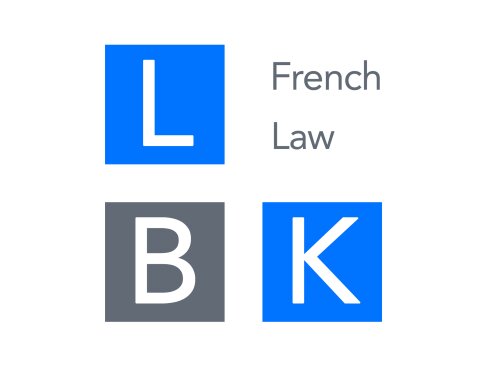Best Immigration Lawyers in France
Share your needs with us, get contacted by law firms.
Free. Takes 2 min.
Or refine your search by selecting a city:
List of the best lawyers in France
About Immigration Law in France
Immigration law in France governs the movement of people across its borders, ensuring that individuals entering, residing, or working within the country do so lawfully. Over recent years, France has experienced significant immigrant flows, leading to an evolving legal landscape that addresses diverse issues from asylum seeking to employment permits. The country's approach balances national interests with human rights commitments, underpinned by both domestic legislation and European Union regulations.
Why You May Need a Lawyer
Navigating the complexities of immigration law in France can be challenging due to numerous legal requirements and constant policy updates. Common situations where legal assistance might be necessary include:
- Applying for residency or work permits and understanding eligibility criteria.
- Facing deportation or removal proceedings.
- Dealing with visa denials or application complications.
- Seeking asylum or refugee status due to persecution in one's home country.
- Family reunification matters when trying to bring family members to France.
- Resolving citizenship issues, such as naturalization procedures.
Employing a lawyer can provide crucial guidance, ensure compliance with regulations, and increase the likelihood of a successful outcome in immigration processes.
Local Laws Overview
France's immigration laws are detailed and cover multiple residency, employment, and asylum conditions. Below are key aspects:
- Titles of Stay (Titre de Séjour): Non-European Union nationals must hold a valid titre de séjour to stay beyond short-term visits. The type depends on the purpose of stay, such as work, studies, or family reunification.
- Work Permits: Employment opportunities for non-EU citizens require specific work permits. Several categories exist, tailored to professional qualifications and job sectors.
- Asylum and Refugee Law: France recognizes the right to asylum under international obligations. Applicants must demonstrate persecution risks based on race, religion, nationality, membership in a social group, or political opinion.
- Naturalization: Foreign nationals may apply for French citizenship after meeting residency requirements, language proficiency, and cultural integration standards.
- Family Reunification: Allows non-EU residents to bring certain family members to France, contingent on economic stability and adequate living conditions.
Frequently Asked Questions
1. What are the general requirements for obtaining a French visa?
Requirements vary by visa type but typically include a valid passport, proof of financial means, health insurance, a completed application form, and a purpose of stay proof, such as an invitation letter or work contract.
2. How long can I stay in France with a tourist visa?
A Schengen visa allows stays for up to 90 days within a 180-day period, applicable for tourism, business, or family visits.
3. What is the process for seeking asylum in France?
Asylum seekers must register with the French Office for the Protection of Refugees and Stateless Persons (OFPRA) and provide evidence supporting their claims of persecution.
4. Can I work in France while on a student visa?
Yes, students are permitted to work up to 964 hours per year, approximately 20 hours per week, under a valid student visa.
5. How do I apply for French citizenship through naturalization?
Candidates must reside in France for at least five years, demonstrate language proficiency, and show integration into French society before submitting a naturalization application.
6. What is required for family reunification in France?
Applicants must prove financial stability, suitable accommodation, and that family members intend to live with them. The process is applicable to spouses, children, and dependent relatives.
7. How can foreign professionals work in France?
Foreign professionals need a relevant work permit, with categories depending on their skill level and job type. Employers often sponsor and guide the application process.
8. What should I do if my visa application is denied?
Applicants can appeal a visa refusal within two months of the decision or reapply, addressing any previously cited reasons for denial.
9. Is dual citizenship allowed in France?
Yes, France permits dual citizenship, allowing individuals to retain their original nationality while acquiring French citizenship.
10. How do immigration regulations differ for EU nationals?
EU nationals have the right to reside, work, and seek services in France without a visa or permit, benefiting from freedom of movement regulations within the European Union.
Additional Resources
For those seeking more information or assistance in immigration matters, consider the following resources:
- French Office for Immigration and Integration (OFII) - Provides information on visas, residence permits, and integration programs.
- Prefecture Offices - Local administrative bodies managing immigration documentation and procedures.
- Legal Aid Centers (Maison de la Justice et du Droit) - Offer free legal advice and guidance in various legal matters, including immigration.
- Non-Governmental Organizations (NGOs) - Various NGOs, such as La Cimade, specialize in supporting migrants and asylum seekers through legal assistance and advocacy.
- Official Government Websites - The French government's official online portals provide comprehensive guidance on immigration processes and legal requirements.
Next Steps
If you require legal assistance in immigration matters, consider the following steps:
- Identify your specific needs, whether it pertains to visas, residency, or asylum applications.
- Consult an immigration lawyer or a legal aid center for professional guidance and representation.
- Gather all necessary documentation, including passports, birth certificates, marriage certificates, and any other required paperwork.
- Prepare for potential appeals or legal proceedings if facing visa denials or deportation notices.
- Stay informed on the latest changes in immigration law by regularly checking official sources or subscribing to updates from reliable legal resources.
By taking these steps, individuals can better equip themselves to handle their immigration needs and ensure compliance with French laws and regulations.
Lawzana helps you find the best lawyers and law firms in France through a curated and pre-screened list of qualified legal professionals. Our platform offers rankings and detailed profiles of attorneys and law firms, allowing you to compare based on practice areas, including Immigration, experience, and client feedback.
Each profile includes a description of the firm's areas of practice, client reviews, team members and partners, year of establishment, spoken languages, office locations, contact information, social media presence, and any published articles or resources. Most firms on our platform speak English and are experienced in both local and international legal matters.
Get a quote from top-rated law firms in France — quickly, securely, and without unnecessary hassle.
Disclaimer:
The information provided on this page is for general informational purposes only and does not constitute legal advice. While we strive to ensure the accuracy and relevance of the content, legal information may change over time, and interpretations of the law can vary. You should always consult with a qualified legal professional for advice specific to your situation.
We disclaim all liability for actions taken or not taken based on the content of this page. If you believe any information is incorrect or outdated, please contact us, and we will review and update it where appropriate.
Browse immigration law firms by service in France
France Attorneys in related practice areas.
Browse immigration law firms by city in France
Refine your search by selecting a city.
















